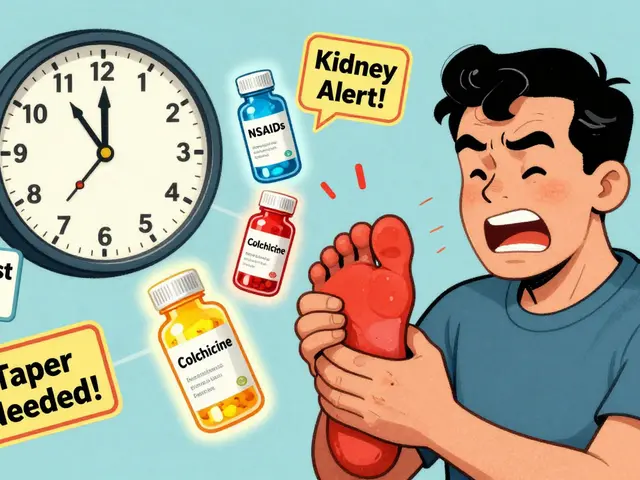Actos (Pioglitazone): What You Need to Know
If you’ve been prescribed Actos, you’re probably wondering how it helps control blood sugar and what you should watch out for. Actos is the brand name for pioglitazone, a pill that belongs to the thiazolidinedione class of diabetes drugs. In plain terms, it makes your body’s cells more responsive to insulin, which can lower your glucose levels without causing hypoglycemia when used alone.
Most people take Actos when diet and exercise alone aren’t enough to keep their A1C in range. It’s usually added to metformin or other oral agents, and sometimes paired with insulin for extra control. The key thing to remember is that Actos works over weeks, not hours, so you won’t feel an immediate drop in blood sugar. Patience and regular monitoring are essential.
How Actos Works and Who Should Take It
Pioglitazone binds to a specific receptor called PPAR‑γ, found in fat and muscle cells. This binding tells the cells to improve the way they handle insulin, letting glucose move from the bloodstream into the cells for energy. Because it doesn’t force your pancreas to release more insulin, the risk of low blood sugar is lower than with some older drugs.
Actos is approved for adults with type 2 diabetes when other medications aren’t enough. It’s not for type 1 diabetes, because those patients lack insulin production entirely. If you have a history of heart failure, liver disease, or bladder cancer, your doctor may avoid Actos or use a very low dose. Always discuss your full medical history before starting.
The typical starting dose is 15 mg once daily, taken with or without food. After about a month, many doctors increase the dose to 30 mg if your blood sugar is still high. Some people stay on 15 mg if they experience side effects or if 30 mg isn’t needed to hit target numbers.
Managing Side Effects and Safety Tips
Like any medication, Actos has potential side effects. The most common are weight gain, fluid retention, and mild swelling in the ankles. If you notice sudden swelling, shortness of breath, or rapid weight gain, call your healthcare provider right away—these could signal fluid buildup related to heart issues.
Another concern is a slightly increased risk of bone fractures, especially in women. Staying active, getting enough calcium and vitamin D, and discussing bone‑health screening with your doctor can help mitigate this risk.
There’s also a rare but serious warning about bladder cancer. The data isn’t crystal‑clear, but most doctors weigh the benefits against this possible risk, especially for long‑term users. If you have a history of bladder problems, let your doctor know.
To keep things smooth, pair Actos with regular blood‑sugar checks, a balanced diet, and consistent exercise. Jumping on a crash diet or stopping the medication without talking to your doctor can cause blood‑sugar spikes.
Finally, store Actos at room temperature, away from moisture and heat. Keep it out of reach of children, and never share your pills with anyone else.
In short, Actos can be a solid tool for managing type 2 diabetes when used correctly. Understanding how it works, knowing the right dose, and staying alert to side effects will help you get the most benefit while minimizing risks. Talk to your pharmacist or doctor whenever you have questions—your health is worth the conversation.





